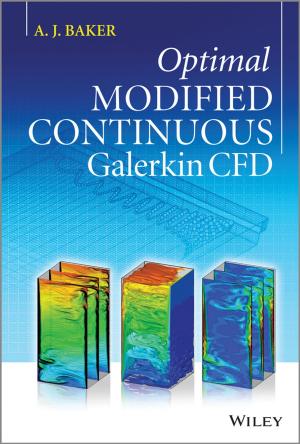New Scholarship in Critical Quantitative Research, Part 2: New Populations, Approaches, and Challenges
New Directions for Institutional Research, Number 163
Nonfiction, Reference & Language, Education & Teaching, Higher Education| Author: | ISBN: | 9781119102106 | |
| Publisher: | Wiley | Publication: | April 23, 2015 |
| Imprint: | Jossey-Bass | Language: | English |
| Author: | |
| ISBN: | 9781119102106 |
| Publisher: | Wiley |
| Publication: | April 23, 2015 |
| Imprint: | Jossey-Bass |
| Language: | English |
This volume is the second in a two-part series on differentiating approaches to quantitative research
from more traditional positivistic and postpositivistic approaches. While the first volume provided an expanded conceptualization of critical quantitative inquiry, this volume concludes the series by:
- applying critical quantitative approaches to new populations of college students who are rarely addressed in institutional and higher education research, such as American Indian, Alaska Native, and students with disabilities,
- applying the principles of quantitative criticalism to advanced methods of statistical analysis, and
- discussing the variety of challenges to overcome and presenting a future research agenda using these methods.
This work is of interest to institutional and higher education researchers who want to expand and critique new ways of thinking about the broad array of populations participating in and served by higher education, while keeping in mind the goals of revealing inequity, challenging marginalization, and helping all students to succeed.
This is the 163rd volume of this Jossey-Bass quarterly report series. Timely and comprehensive, New Directions for Institutional Research provides planners and administrators in all types of academic institutions with guidelines in such areas as resource coordination, information analysis, program evaluation, and institutional management.
This volume is the second in a two-part series on differentiating approaches to quantitative research
from more traditional positivistic and postpositivistic approaches. While the first volume provided an expanded conceptualization of critical quantitative inquiry, this volume concludes the series by:
- applying critical quantitative approaches to new populations of college students who are rarely addressed in institutional and higher education research, such as American Indian, Alaska Native, and students with disabilities,
- applying the principles of quantitative criticalism to advanced methods of statistical analysis, and
- discussing the variety of challenges to overcome and presenting a future research agenda using these methods.
This work is of interest to institutional and higher education researchers who want to expand and critique new ways of thinking about the broad array of populations participating in and served by higher education, while keeping in mind the goals of revealing inequity, challenging marginalization, and helping all students to succeed.
This is the 163rd volume of this Jossey-Bass quarterly report series. Timely and comprehensive, New Directions for Institutional Research provides planners and administrators in all types of academic institutions with guidelines in such areas as resource coordination, information analysis, program evaluation, and institutional management.















